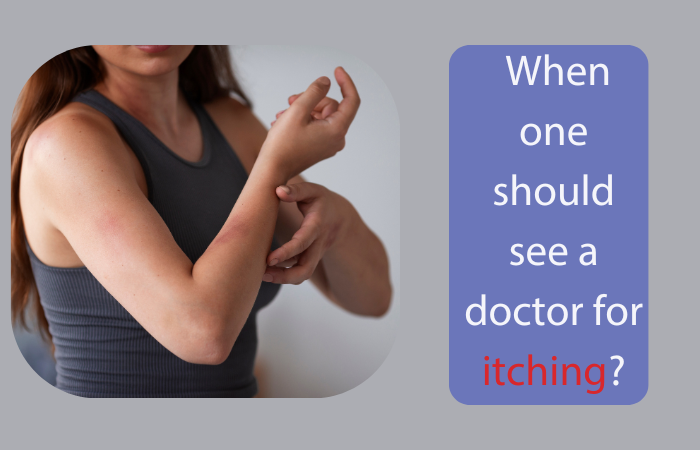Itching, medically known as pruritus, is something we all experience at some point. While most itching is harmless and resolves on its own, persistent or severe itching could indicate an underlying issue that requires medical attention. Knowing when to consult a doctor can save you from prolonged discomfort and help address the root cause effectively.
Common Causes of Itching
Itching can result from various factors, including:
- Dry Skin: Often triggered by weather changes, dehydration, or harsh soaps.
- Allergic Reactions: Caused by certain foods, medications, or skin care products.
- Insect Bites: Mosquitoes, bed bugs, and other pests can lead to localized itching.
- Skin Conditions: Eczema, psoriasis, or fungal infections are common culprits.
- Systemic Issues: Sometimes, itching can signal internal health problems like liver disease, kidney issues, or thyroid disorders.
- Stress: Psychological factors can also contribute to itching.
When to See a Doctor
Here are signs that indicate it’s time to consult a dermatologist:
1. Persistent Itching
If the itching lasts for more than two weeks despite using over-the-counter remedies or lifestyle changes, it’s essential to seek professional advice.
2. Severe Intensity
Itching that disrupts your daily activities or sleep requires medical evaluation to identify the underlying cause.
3. Accompanying Symptoms
Be cautious if your itching is accompanied by:
- Redness, swelling, or rash
- Blisters or open sores
- Fever or night sweats
- Unexplained weight loss
4. Localized Itching
If the itching is confined to specific areas like your scalp, palms, or feet, it could be due to a localized infection or a skin condition needing treatment.
5. Worsening Symptoms
When itching worsens over time, even with treatment, it could point to a more complex health issue.
Diagnosis and Treatment
A dermatologist can perform a thorough evaluation, which may include:
- A physical exam
- Allergy tests
- Blood work to check for systemic conditions
- Skin biopsies for persistent or unclear cases
Treatment options vary based on the cause but may include:
- Topical creams and ointments
- Antihistamines for allergies
- Specialized treatments for skin conditions
- Lifestyle advice to prevent recurrence
Why Early Intervention Matters
Ignoring chronic itching can lead to complications such as skin infections due to scratching or the progression of an underlying condition. Early intervention ensures effective treatment and prevents discomfort from escalating.
Consult a Trusted Dermatologist
If you’re dealing with persistent itching, it’s crucial to consult a professional. Dr. Priyanka Tambe at Dermadent Laser Clinic is a highly trusted dermatologist in Dhankawadi. With her expertise and personalized approach, she can help you identify and treat the root cause of your itching, ensuring your skin’s health and comfort.
Take the first step toward relief—schedule an appointment today!


